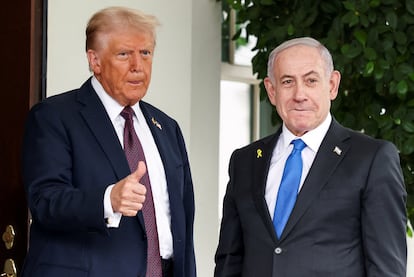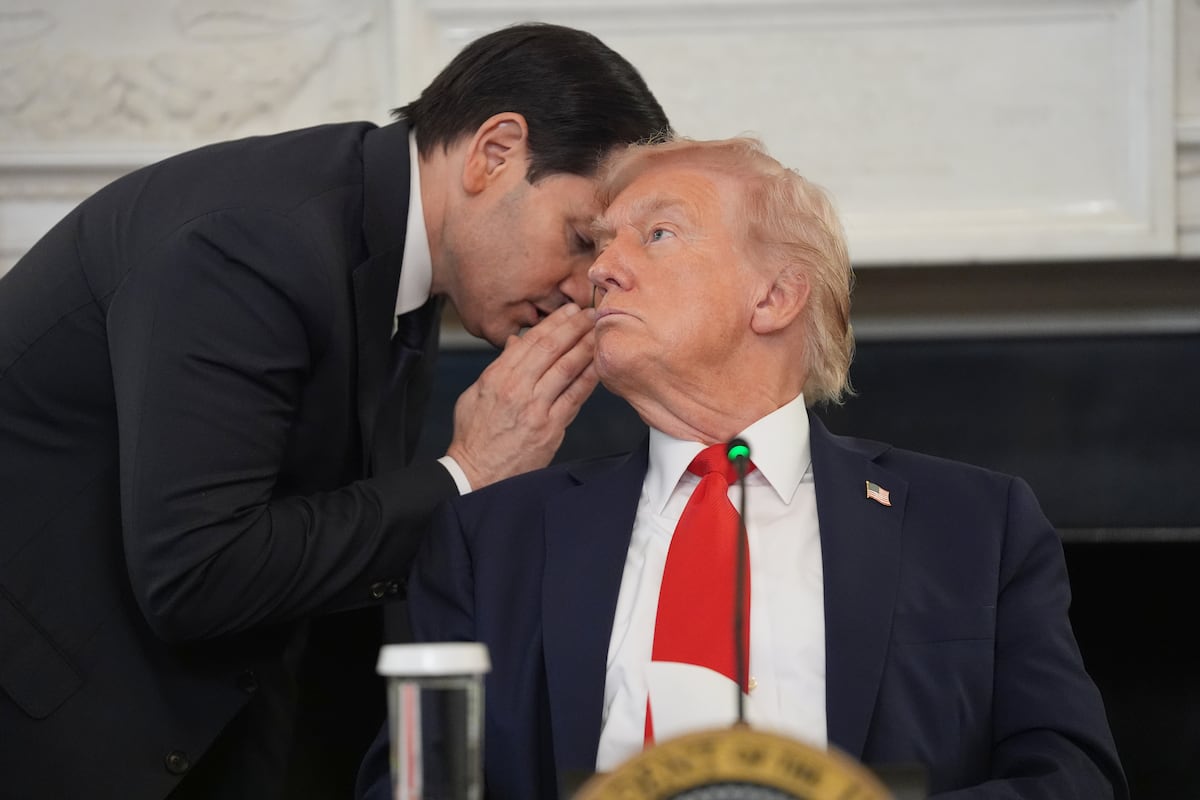Israel and Hamas have reached an agreement on the first phase of Donald Trump’s peace plan for Gaza. The announcement was made by the U.S. president and confirmed by both parties as well as Qatar, another mediator, specifying that it includes “all provisions and implementation mechanisms” for 48 Israeli hostages (of whom 20 are estimated to be still alive) to be exchanged for some 2,000 Palestinian prisoners.
The agreement, reached on Wednesday night, will be signed at noon on Thursday (Israeli time), according to an Israeli source familiar with the details who spoke with Reuters. According to this source, a ceasefire will take effect on the ground at the moment of signing, meaning Israel will halt its attacks. The source assures that Israeli hostages will be released between Saturday and Monday, beginning on Saturday with those who are still alive.
In addition to the exchange, the first phase of the framework includes a technical withdrawal of Israeli troops to an agreed-upon line, and allowing access for the humanitarian aid that Israel had been blocking. Within the first 24 hours of the ceasefire, the Israeli army will complete the first phase of its partial withdrawal.
“This means that ALL of the Hostages will be released very soon, and Israel will withdraw their Troops to an agreed upon line as the first steps toward a Strong, Durable, and Everlasting Peace,” Trump wrote on social media. “All Parties will be treated fairly!”
It has all happened very quickly. Just three weeks ago, Trump grandly announced at the White House, alongside Israeli Prime Minister Benjamin Netanyahu, a plan to end the Israeli invasion triggered by the Hamas attack — which on Tuesday marked its second anniversary with more than 67,000 dead (mostly children and women), 170,000 wounded (40,000 of them with life-shattering injuries), and devastation on a level almost unprecedented in the modern era.
 U.S. President Donald Trump welcomes Israeli Prime Minister Benjamin Netanyahu at the White House on September 29, 2025. Kevin Lamarque (REUTERS)
U.S. President Donald Trump welcomes Israeli Prime Minister Benjamin Netanyahu at the White House on September 29, 2025. Kevin Lamarque (REUTERS)
It was not really an agreement, but rather an ultimatum without deadlines or guarantees for the weakened and increasingly isolated Islamist movement, which Trump threatened with annihilation if it did not accept quickly. Hamas responded with a “yes, but”; Trump chose to focus only on the first part of that response, and pushed the two sides to finalize the details not in weeks, but in days, as ultimately happened in the Egyptian city of Sharm El Sheikh.
The mediators went to work on fast-track mode: Trump sent his special envoy to the Middle East, Steve Witkoff, and his son-in-law, Jared Kushner, who was heavily involved in regional diplomacy during Trump’s first term, while Qatar (a key mediator) sent its prime minister, Mohammed Al Thani. Egypt and Turkey sent their intelligence chiefs, Hassan Rashad and Ibrahim Kalin, respectively.
Minutes after Trump’s announcement, Netanyahu said he would convene his government on Thursday to vote on the agreement (which he described as a “diplomatic success and a national and moral victory for the State of Israel”) and that he would invite Trump to address parliament.
Lingering questions
Hamas has also confirmed the agreement in a statement that focuses on its two main concerns: who will guarantee that Netanyahu will not order the resumption of bombing once Hamas has lost its only bargaining chip (the hostages), and how far Israeli troops will withdraw. On the first point (given the precedent set last March, when Trump blessed Netanyahu’s decision to break the previous ceasefire designed to be permanent), it urges “President Trump, the guarantor countries, and various Arab, Islamic, and international parties to compel the occupation government [Israel] to fully implement the requirements of the agreement and not allow it to evade or delay the implementation of what has been agreed upon.”
The withdrawal is being described as “complete,” but the terms of the agreement are still unknown, and Israel has made it clear since the beginning of its invasion that it will remain indefinitely within a yet to be defined security perimeter. The spokesperson for the Qatari Foreign Ministry has indicated that details will be made public at a later date.
The forum representing the families of Israeli hostages has reacted to the announcement with caution, fearing that something could go wrong after two years of waiting. It expresses its “deep gratitude” to Trump, but admits to feeling a “mixture of excitement, hope, and concern” and urges Netanyahu’s government to approve it immediately.
The second phase of the plan will be more complex, U.S. Secretary of State Marco Rubio admitted this week, as it will involve the formation of a Palestinian technocratic government, reconstruction, and, above all, the disarmament of Hamas.
Sign up for our weekly newsletter to get more English-language news coverage from EL PAÍS USA Edition
